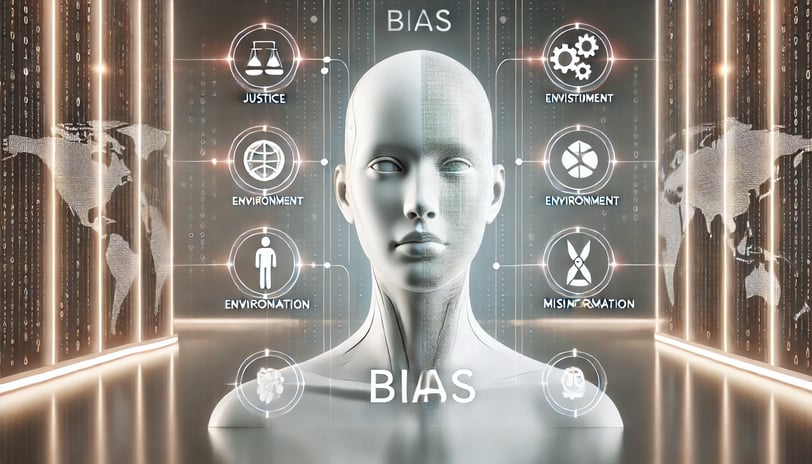Bias-Free AI Is Even More Dangerous
Blog post description.
AI GOVERNANCEMOST POPULAR


Discussions about bias in Artificial Intelligence (AI) often focus on the dangers of training these systems with harmful distortions, such as racial, gender, or social prejudices. However, a less debated but equally critical issue is the absence of certain biases that could be essential to ensuring that AI operates ethically and responsibly
Before diving deeper into this topic, it’s important to challenge the idea that “bias” is inherently negative. In its broadest sense, bias simply means an inclination or tendency. While avoiding biases that lead to illegal discrimination is crucial, we must ask: shouldn’t AI be deliberately inclined to protect certain fundamental societal values?
Who Decides What AI Should Prioritize?
AI systems rely on vast amounts of data to function, and developers or implementing organizations decide which sources are used. This process inevitably involves choices about what information is deemed relevant and what is disregarded. As a result, an AI system may not only inherit unwanted biases but also fail to include certain biases that could protect collective interests such as environmental preservation, human life, child welfare, democracy, and social stability.
For example, current U.S. President Donald Trump has publicly stated that global warming is "one of the greatest hoaxes of all time." If a government sharing this perspective controls an AI system designed for economic development, there is a high chance that the system will ignore critical environmental data. After all, why would a model trained under this premise consider a problem that its developers don’t acknowledge as real? This is an example of how the absence of bias can impact large-scale decision-making.
AI, Democracy, and the Fight Against Disinformation
Another relevant example is the spread of disinformation and reputation attacks, especially during elections. Fake news released days before a vote can compromise democratic integrity. If AI developers prioritize freedom of speech above all else without a bias favoring the protection of electoral processes, these systems may fail to curb the spread of false information.
This raises a complex question: how do we balance free speech with the need to combat misinformation? Some platforms already implement AI to flag or limit the reach of suspicious content, but without a clear directive from developers on what should be prioritized, these measures may be insufficient.
When the Lack of Bias Costs Lives
In 2014, in the United States, a woman was brutally murdered after being falsely accused of crimes in viral social media posts. The lynching resulted from mass hysteria fueled by disinformation. If AI-powered content moderation systems had been in place to detect and mitigate hate speech and incitement to violence, could this tragedy have been prevented?
The answer depends on an intentional choice made by developers and regulators. If an AI system is trained to prioritize human life over unrestricted freedom of publication, it could act more swiftly to stop the spread of dangerous content. However, making that decision requires a consensus on which values should take precedence.
Conclusion
The major issue of our time is not just preventing harmful biases in AI but ensuring that these systems are designed to protect fundamental societal interests. This requires developers, businesses, and regulators to make deliberate choices about which biases are necessary for AI to serve not just private interests but the collective good.
In an era of political polarization and institutional distrust, leaving these choices to chance can be just as dangerous as programming AI with explicit prejudices. In many cases, the absence of bias is not neutrality, it is negligence.
